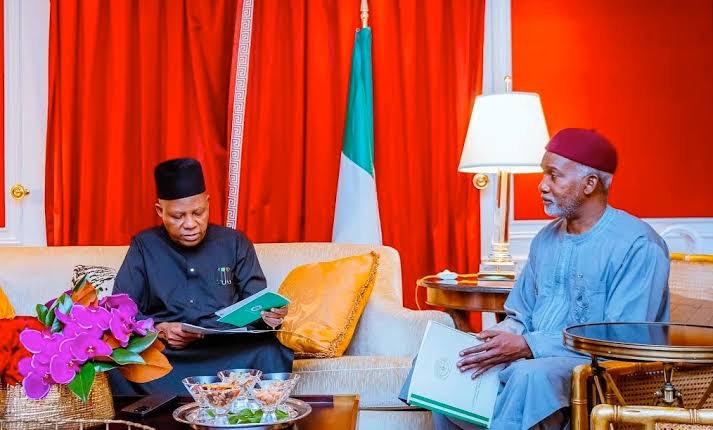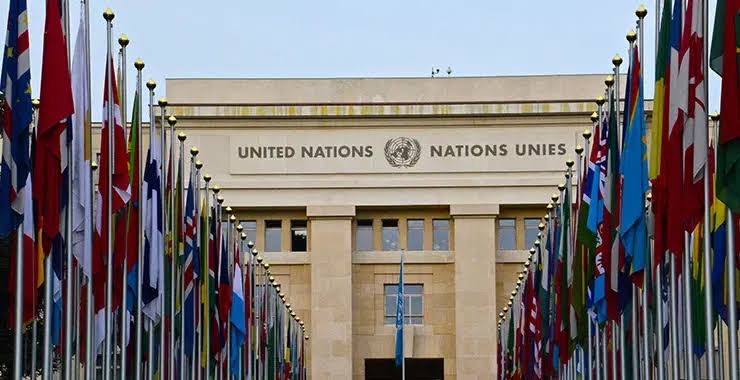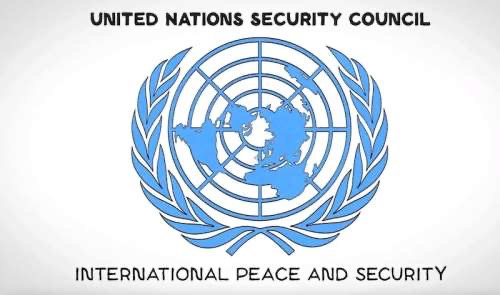Nigeria has once again emphasized its call for fair representation on the United Nations Security Council (UNSC), emphasizing the country’s longstanding contribution to global peacekeeping efforts. Citing its extensive involvement in international peace missions, Nigeria argues that it has earned the right to be a permanent member of the Security Council.
According to Nigerian officials, the country has participated in over 41 peacekeeping operations worldwide, deploying more than 200,000 troops to various UN missions.
Speaking at the 79th United Nations General Assembly (UNGA) in New York, the Minister of Defence, Mohammed Badaru, made a compelling case for this inclusion. “It is on this basis that Nigeria continues to call for the reform of the United Nations Security Council to give just representation to Africa permanently for inclusivity and deepening of global peace and security,” Badaru said during his address at the summit of the Future Interactive Dialogue 2, a high-level forum aimed at enhancing multilateralism for international peace and security.
The UNSC is one of the most critical organs of the United Nations, with 15 members responsible for maintaining international peace and security. These members also play a pivotal role in recommending new member admissions to the UN General Assembly and approving changes to the UN Charter.

The Security Council oversees peacekeeping operations, enforces international sanctions, and authorizes military interventions. Given the significant role it plays, countries like Nigeria believe that Africa deserves a permanent seat on the council to reflect the continent’s growing influence in global affairs.
In his remarks, Badaru reflected on Nigeria’s history of peacekeeping contributions, starting with its first deployment to Congo in 1960. “To date, Nigeria has contributed to 41 peacekeeping operations worldwide, with over 200,000 Nigerian troops serving in UN peacekeeping missions,” Badaru noted.
He also highlighted Nigeria’s regional involvement, particularly in West Africa, where the country has been active in peacekeeping missions across Côte d’Ivoire, Guinea-Bissau, The Gambia, Liberia, Mali, Sudan, and Sierra Leone. Nigeria’s contributions have not been limited to just military forces; the country has provided financial support, logistics, and civilian experts, making it one of the largest African contributors to UN peacekeeping missions.
Based on these efforts, Badaru argued that Nigeria and Africa as a whole are qualified for permanent representation on the Security Council. He emphasized that such representation would promote inclusivity and strengthen global peace efforts. “This qualifies Nigeria and Africa for a just representation on a permanent basis for inclusivity and deepening of global peace and security,” Badaru asserted.
In addition to advocating for UNSC reform, Badaru called for the strengthening of African military capacities to tackle terrorism and insecurity on the continent. He pointed out the need for operationalizing the African Standby Force, which is a regional military force designed to respond to emergencies in Africa.
“We recognize the need for Africa to build strong and professional armies to, among other things, defeat terrorism,” Badaru stated, stressing that Nigeria has consistently advocated for more robust cooperation between African nations in counter-terrorism efforts.
Badaru also touched on the challenges posed by transnational crime and the proliferation of illegal arms, particularly in the Sahel region. He called for comprehensive strategies to address these threats, including measures for prevention, early detection, and law enforcement. He warned that the growing alliance between bandits and terrorists, as well as the rising trend of kidnappings for ransom and piracy, are creating new security challenges that must be addressed urgently.

“We must scale up our efforts in addressing transnational organized crime and related illegal financial flows through comprehensive strategies, including prevention, early detection, protection, and law enforcement,” he said. He added that the unchecked access to illicit arms by non-state actors is exacerbating insecurity in conflict-prone areas like the Sahel.
Badaru’s speech also underscored the need for international cooperation to stem the flow of small arms and light weapons into conflict zones. “We seize this opportunity to urge the international community to renew efforts to stem the tide of small arms and light weapons in conflict, especially within the Sahel region,” he said.
He concluded by reaffirming Nigeria’s commitment to supporting UN initiatives aimed at combating terrorism and promoting global peace.
Complementing Badaru’s remarks, Nigeria’s Minister of Foreign Affairs, Yusuf Tuggar, also addressed global leaders at the summit, focusing on sustainable development. Tuggar highlighted the slow progress being made on the Sustainable Development Goals (SDGs), noting that only 16% of the SDG targets are on track to be achieved by the 2030 deadline.
“The SDG Index estimates that only about 16 percent of the SDG targets are on track to be achieved,” Tuggar said. He urged developed nations to honor their commitments to supporting sustainable development in the global South and called for an extension of the 2030 deadline if the goals remain unmet.
Tuggar emphasized that systemic inequalities and historical imbalances have left many African nations struggling to achieve their development objectives. He called for a comprehensive reform of the international financial system to ensure greater inclusivity and transparency.
This reform, according to Tuggar, should include comprehensive debt relief for African nations facing economic hardships. “We must, therefore, take action-oriented measures to engender the following: Reform of the UN Security Council to ensure a permanent seat for Africa; reform of the international financial architecture to promote an inclusive, non-discriminatory, and transparent international trading system,” Tuggar explained.
The foreign minister also highlighted the importance of supporting local production and exports from Africa, as well as ensuring the repatriation of illicit financial flows and assets. In his call for climate action, Tuggar stressed the need for a fair transition away from fossil fuels, based on the principle of Common But Differentiated Responsibilities. He also advocated for financial support to the Global South, proposing an annual allocation of $500 billion as part of the UN Secretary-General’s SDG stimulus plan.
Tuggar concluded his speech by reaffirming Nigeria’s commitment to the 2030 Agenda for Sustainable Development. He called for immediate and collective action through the Pact for the Future, urging the international community to come together to tackle the most pressing challenges facing Africa and the wider global South.
Through this, Tuggar argued, the international community can help foster sustainable development and address the inequalities that continue to hold many countries back from reaching their full potential.

































